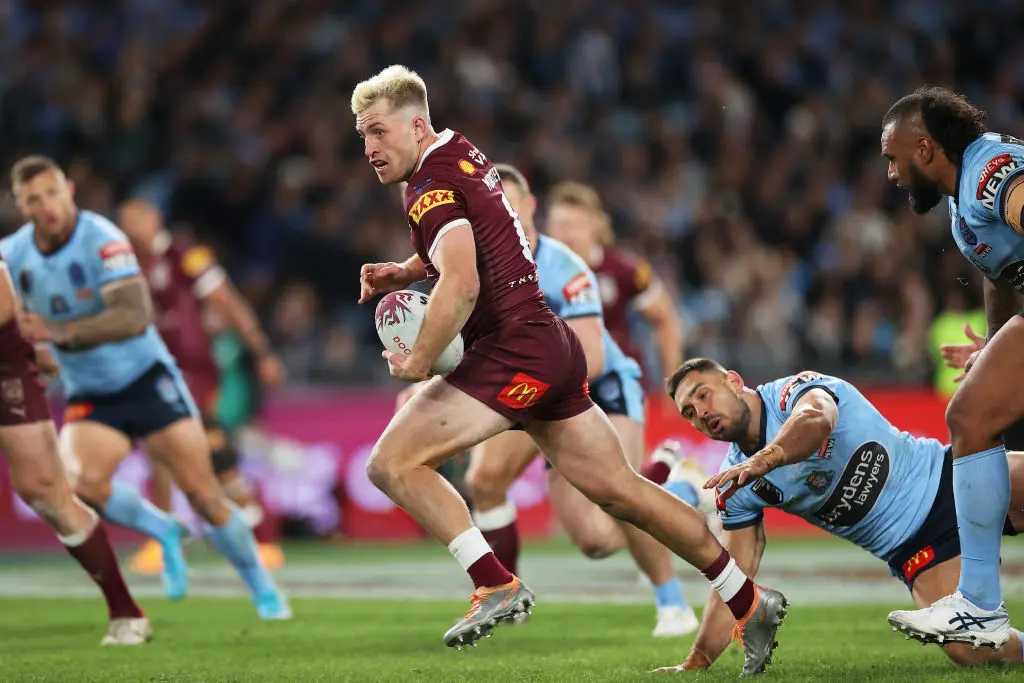Cameron Munster has slammed the treatment of Isaah Yeo's possible concussion in the opening game of the 2022 State of Origin series.
The five-eighth, who would go on to a man of the match performance in steering his team to a 16 points to 10 victory over the NSW Blues, was less than impressed by the fact Yeo was allowed to play on after he stumbled out of the opening tackle of the game.
Yeo has claimed he wasn't concussed and remembers the events clearly after he made contact with Josh Papalii and appeared to lose his footing attempting to get back into the defensive line.
The NRL's independent doctor ruled the incident a Category 3 concussion event, leaving the decision up to the on-field medical staff to assess Yeo and decide whether he would be able to play on.
Passing the on-field test, Yeo played out the game, although NSW advisor Greg Alexander has since admitted he should have come from the field.
Munster, who was forced off during the 2020 State of Origin series after stumbling himself, told reporters that someone had to take responsibility for it.
"It wasn't rocket science, you could see he wasn't well," Munster said.
"It makes me sick (to see it) but someone's got to put their hand up and take responsibility for it, cause it's not on.
"We've been speaking about it for years and years about the welfare of our players and our heads.
"You want to showcase that in the biggest game of the year.
"I know it's an Origin game ... but someone's got to take a stand.
"I didn't want to go off (in 2020), I passed all my HIAs and everything, but because I stumbled and wasn't right they pulled me."
The independent doctor that the NRL have employed for every game this year has created a clear cut call on many concussion cases that otherwise may have allowed players to remain on the field after passing on-field tests from the medical staff.
It had been revealed yesterday that the NRL were set to investigate the incident, but the NRL's head of football Graham Annesley said on Thursday that there were no problems with the process undertaken.
"While there were indicators that could have supported a category-two assessment, the decision to have the team medical trainer conduct an on-field check did not reveal any signs that an off-field HIA was required," Annesley said.
"This decision was supported after a further check by NSW medical officer, Nathan Gibbs, at halftime and again at fulltime, with the player not exhibiting any symptoms of concussion."







